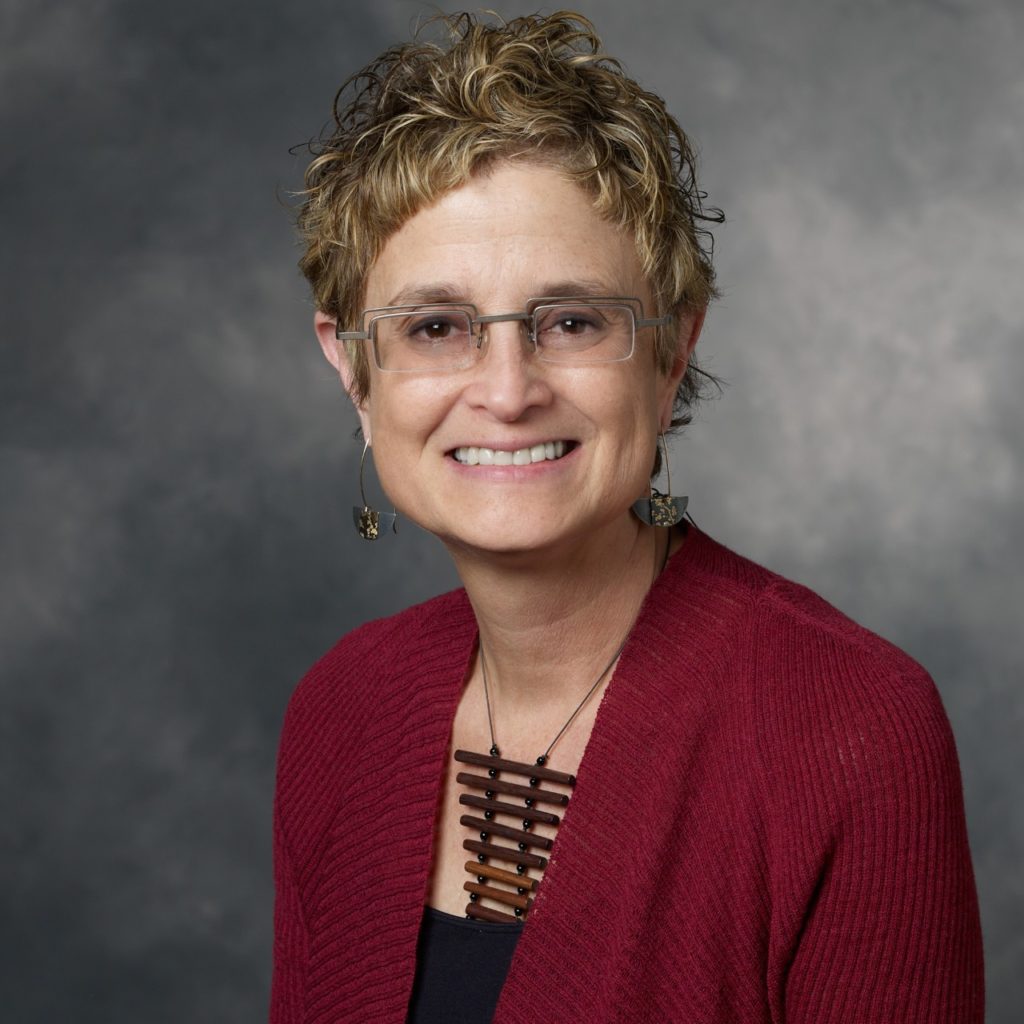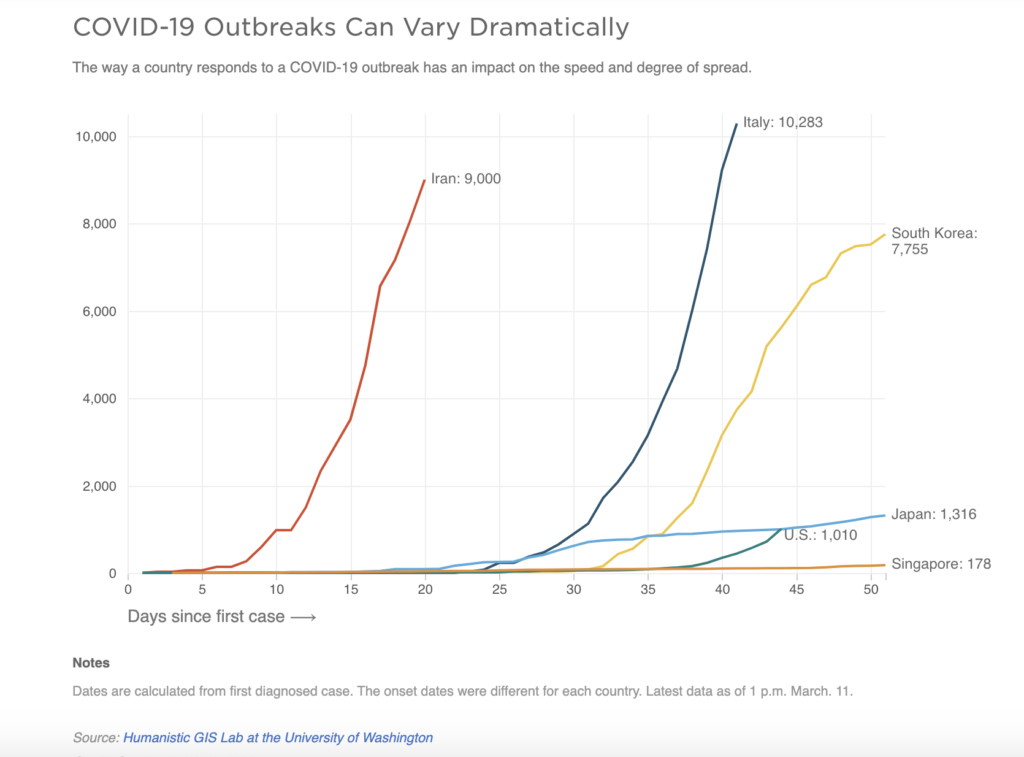Published: 03/20/2020
More than 200,000 people in at least 164 countries have contracted the 2019 novel corona virus, or COVID-19, according to the World Health Organization (WHO), as of March 18, 2020.
“Pandemics ignore borders and question state sovereignty and governance,” said Michele Barry, MD, Stanford’s Senior Associate Dean of Global Health and the director of the Center for Innovation in Global Health.

Speaking at a Department of Medicine Grand Rounds, Barry compared other four countries’ responses to the virus and lessons learned.
According to the Chinese Center for Disease Control and Prevention, nearly 60 million people were subjected to “cordon sanitaire,” or the restriction of movement in a geographic space, in Hubei Provence, where the first outbreak was detected.
“China’s response included strict control of people’s movements in major cities,” Barry said, adding that the Chinese government took an aggressive coordinated approach to containing the virus. Wuhan has relaxed restrictions and opened schools two and a half months from describing the first cases.
Taiwan used lessons learned from the 2003 SARS outbreak to provide a coordinated response from a central command center for epidemics. Taiwan’s government was able to reassure the public by delivering timely, accurate and transparent information. This approach taken by Taiwan’s leadership is discussed in an JAMA article by C. Jason Wang, Stanford Associate Professor of Pediatrics discusses this approach in this article in the Journal of the American Medical Association
“In Iran, there was a perfect storm of religion versus public health,” Barry said. As a result, numbers of infections have surged.
In the city of Qom, a significant pilgrimage site for Shi’a Muslims, officials refused advice to close holy sites that were kissed and touched by crowds. The sites have now been closed to the public but people continue to try to visit.
In the United States, people are taking actions to slow the spread of the virus. In the San Francisco Bay Area, people are “sheltering in place.”
At the same Grand Rounds, other Stanford faculty described the actions the University has undertaken, including a move to provide more telemedicine appointments to keep physicians and patients safe, and a drive-through testing site that is available to patients whose doctors advised them to get tested.
The Department of Medicine Grand Rounds will continue to update the community weekly on news related to COVID-19 every Wednesday from 8-9 am. A recording of each Grand Rounds will be available on the Stanford Department of Medicine YouTube page.
